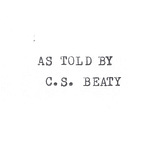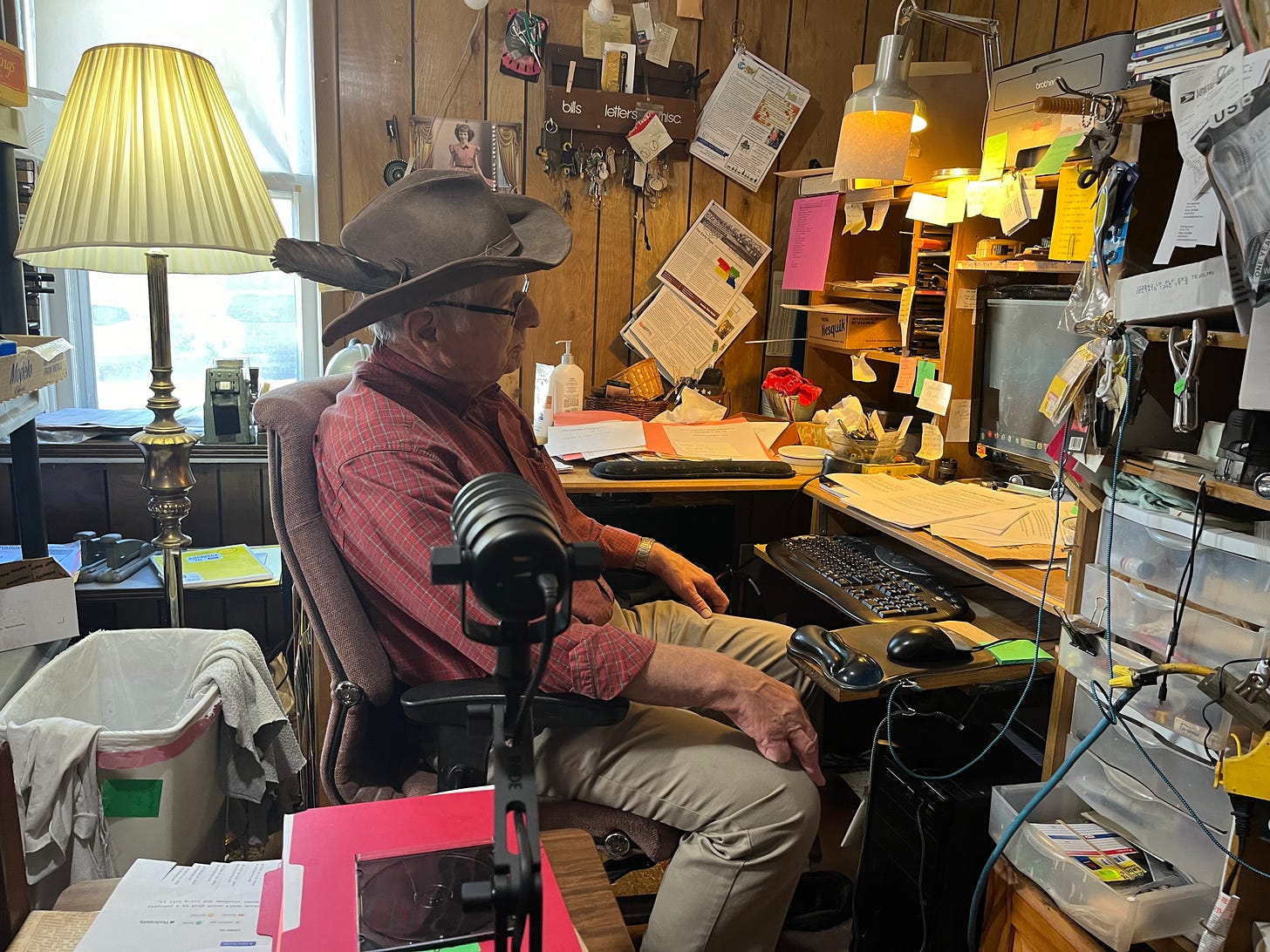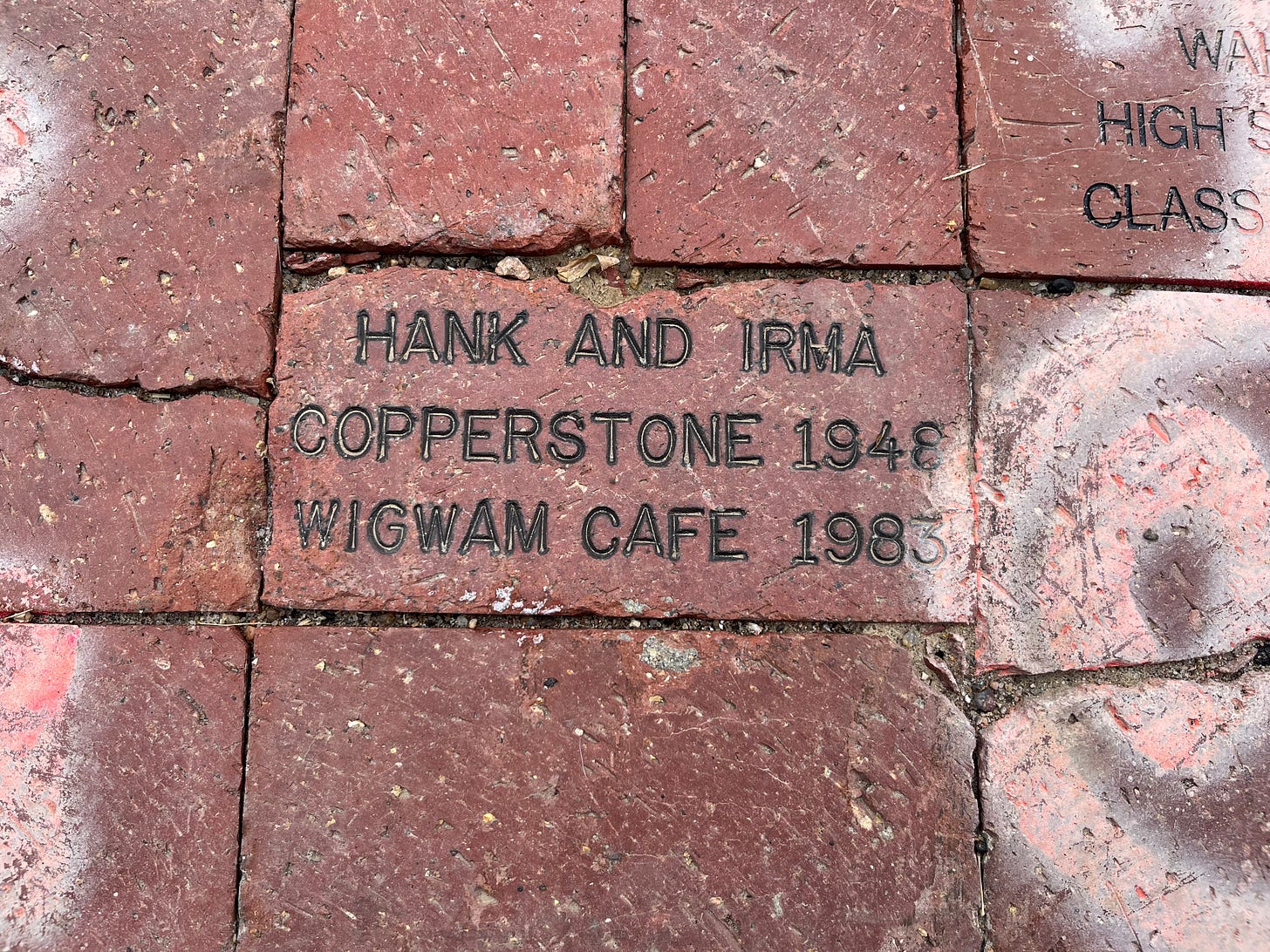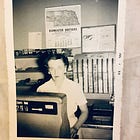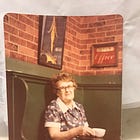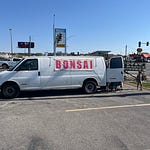By Bob Copperstone
Before my parents, Hank and Irma, acquired the Wigwam Café in 1949, Hank worked in heavy equipment construction for the county and the Meese Construction Co. in Wahoo (“I’m a cat-skinner by trade,” he would proudly say, referring to Caterpillar bulldozers).
Irma was a much sought-after cook (including at the Wigwam, of course).
Dad’s work often took him all over the state for weeks at a time, and when he came home between jobs it was a joyous occasion for his three children.
Mom would tell us that Daddy was coming home, and would we like to go down to the highway a block away and greet him? Oh, wow, would we ever!
Rochelle, Janie and I, quivering with anticipation, ran down past the concrete cement culvert factory to the end of a highway curve and waited to spot Daddy.
However, we knew his appearance would be prematurely announced by a rising cloud of dense truck exhaust smoke and rattletrap engine clanking. (I learned later that his construction company pickup had been poorly converted to incompletely burn cheaper and handier diesel fuel.)
Sure enough, Daddy came into view. He spotted us and pulled over, and with a beaming smile and open arms, scooped up his swarm of children.
* * *
It was during these wonderful interludes that a treasured family ritual of singing our little hearts out was born.
After we had supper in the kitchen, Daddy would seek out the old rocking chair in the dining room. He might have wanted to read the paper or just sit and rock, but his kids were having none of that. We swarmed in, jumped in his lap and shinnied up his knees.
Daddy would start rocking and humming, “You Are My Sunshine,” and we’d all take it from there, settling in for an evening of song and laughter.
Much of our repertoire was brought home from Sunday school and choir practice, and no small part came from radio’s popular folk songs at the time, such as “Goodnight, Irene.” (When I was very young, I thought they were singing, “I Ring Goodn-i-i-ight.”) (Thanks to The Weavers).
Daddy was great at improvisation, and he came up with a song that never failed to stir a gritty, emotional punch:
He would start, and we’d all sing: “Oh, we DON’T love our Janie!”
The chorus would respond, practically shouting and stamping our feet: “YES, WE DO! “YES, WE DO! “YES, WE DO!
…“Oh, we DON’T love our Mommy! “YES, WE DO! “YES, WE DO! “YES, WE DO!
And so on, until our love of everyone in the family, or any other dear one, was fiercely emphasized. (One time, Janie insisted we shout out our love of Mittens, our dog.)
I always felt warmth after these songs.
* * *
Another of our favorite songs was a Czech language ditty called “Sla Nanynka Do Zeli” (“Annie Went in the Cabbage Field [or Patch]”.
Here’s the way we children mouthed the title: “Shla neeka doz-hallee”. Only close to the actual Czech pronunciation, but it served the purpose. The song went on like that for a couple of verses.
Even though Mom was busy running the household and couldn’t actively participate in our songs, she was always listening from the kitchen. I think she was the source of our adaptation of the song; Daddy would occasionally ask her about Czech pronunciations.
Mom’s folks had emigrated from Czech-speaking Moravia, and that was the language first spoken in her birthplace home here in Malmo.
And here’s where Annie’s adventures in the cabbage patch grow darker.
Today, the musical ditty survives as a frisky children’s tune. Czech celebrations around the world often feature kids dancing gaily to that tune and story.
The G-rated version has Annie, with her little basket, tripping merrily around the cabbage patch.
But naughty Joe, hiding in the bushes, spies Annie dancing and, for some reason, barges in and stomps on her pretty basket.
Well, Annie loudly insists that Joe must pay for the damage. Other townspeople, including her parents, joined her protest.
Joe stubbornly declares that he doesn’t have to pay, and warns that he would flee and join the army to avoid the penalty.
Now, I believe this is where the story line begins to grow thin.
Look, it’s only a child’s cheap basket. How many coins would it take to buy a new one? Is it worth years of forced military service?
I believe that the name of the garden itself gives a clue to the original lyrics.
Think Cabbage.
Think Cabbage Patch dolls of the 1980s.
Think French people and other Europeans who for centuries have told their children that babies are found out in the garden under cabbage leaves.
Well, I did a little investigating the song’s original lyrics and now realize that Annie’s “basket” certainly was stomped on, figuratively and in a manner of speaking, and otherwise violated. Bad, bad Joe!
The old lyrics say Joe was pressed to do his manly duty and marry Annie, which he agreed to after much fuss and threats of escaping to the army.
(I’ll bet Joe wishes he could have gotten away with only buying Annie a new basket.)
(To be continued)


